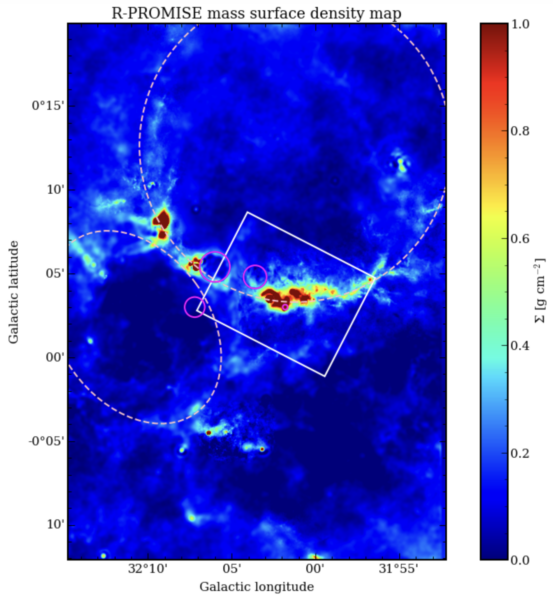
My whirlwind of internship applications started in January, much of which I spent wrapped in blankets typing away on my laptop listing my previous research experiences and grades. The biting cold outside was a far cry from the warm Scandinavian summer I would soon have, though I didn’t know it at the time.
I was thrilled when an email arrived announcing I’d bagged an interview for one internship. I prepared by scribbling answers to mock questions on my whiteboard to practise anything that might come up, specifically why I wanted to do the project, why I was suitable, extracurricular activities and reading I’d done to show interest in the subject, things like that. The supervisor interviewing me was very friendly and I surprised myself as I babbled enthusiastically about astrophysics, and why I wanted to do her project on star formation.
Three months later I was at Heathrow Airport with my enormous suitcase, ready for two months in Sweden. The project was for 10 weeks and I’d be staying in the beautiful city of Gothenburg, hosted by Chalmers University. The accommodation was organised and paid for by the programme, although I had to claim back travel expenses myself, which while tedious is an important skill. I stayed with 15 other interns from all over the world and made lots of new friends who were equally excited by astronomy. I had regular meetings with my supervisors who provided lots of support, especially when I struggled with coding at the start.
‘It felt refreshing to be away from textbooks and answers, which while important, give the illusion that physics is a complete subject where everything is understood, when in fact this is far from true.’
My project involved analysing data of a molecular gas cloud in our galaxy, taken by radio telescopes in Spain and Arizona, to observe the effects of expanding hydrogen bubbles. These can either compress and sweep up the surrounding cloud’s gas, making it dense enough for stars to form, or break it up and suppress any subsequent star formation. Working on a real research topic that is not yet fully understood, reading scientific journals and being in meetings with experts in the field was extraordinary. It felt refreshing to be away from textbooks and answers, which while important, give the illusion that physics is a complete subject where everything is understood, when in fact this is far from true. I rapidly improved my public speaking by presenting my progress in weekly meetings, so that by the symposium in the final week I was well prepared. While my project was mainly telescope data analysis, others worked on computational astrophysics simulations, so I learned about other types of research too.
Each weekend I visited somewhere new, keen to soak in the sun and Swedish scenery. On our first weekend, the head supervisor organised a group trip to Brännö Island, a quick tram and ferry trip away. It was beautiful and unique in being car-free so it was lovely for hiking! Another weekend saw me running 13km with two other interns in a lovely forest and jumping in the lake afterwards. On Midsummer, the longest day of the year when everyone in Sweden has a holiday and generally lets their hair down, we joined in with the locals, wearing floral clothes and enjoying a picnic and dancing in the local park. On yet another weekend I visited a friend in neighbouring Denmark.
Overall the internship was everything I could’ve hoped for and more. I learnt so much about astrophysics, and have decided I want to do a PhD in observational astronomy. I’m much more confident in my coding and public speaking, as well as travelling alone and exploring new places. I enjoyed it so much I’m going to apply for other projects abroad again next summer, and would definitely recommend it to others.


